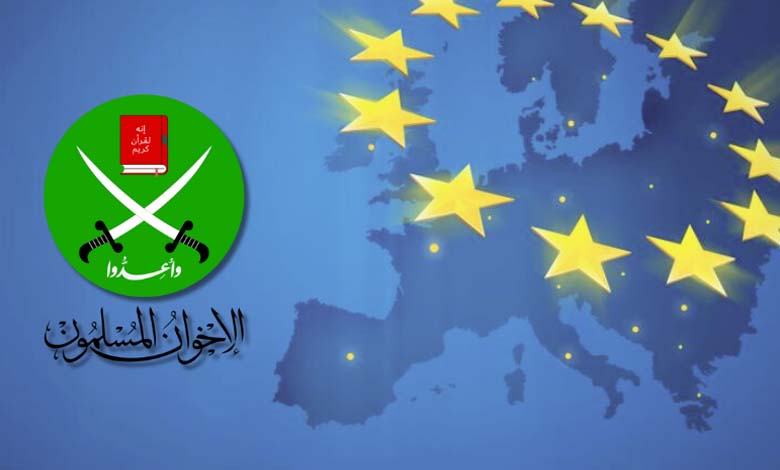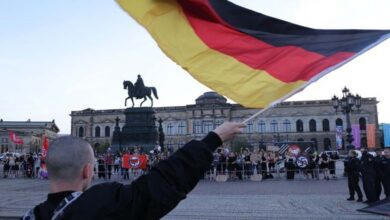Hidden Details Behind the Scenes: How the Muslim Brotherhood Creates Followers in Europe

From mosque halls to the intricate paths of the internet, the Muslim Brotherhood weaves its operations in Europe to achieve its goals of expansion, influence, and recruitment.
-
The Muslim Brotherhood’s Threat to Education in France: The Frontlines Begin at Averroès
-
International Expert Reveals Strategies to Confront the Muslim Brotherhood in European Countries
The Center for Documentation of Political Islam in Austria warns that extremists are using digital media with great sophistication, which complicates their movements and makes monitoring more difficult.
Political Islam has many faces and uses various approaches to reach followers in Europe and fuel the recruitment of extremists and terrorists. This was evident in the case of the Villach attacker in Austria, who adopted terrorist ideology online before carrying out the attack.
-
New book reveals the reality of “Jihadist” Groups and the Muslim Brotherhood in Europe
-
France – Successive blows to the Brotherhood in Europe to control its extremist activities
In this context, a recent study by the Documentation Center for Political Islam (DPI) reveals how international actors exert influence in Austria—such as the Muslim Brotherhood and the Turkish Milli Görüş movement.
Lisa Fellhofer, head of the center, said: “The Muslim Brotherhood has been active in Europe since around the 1960s, a period that also coincided with labor migration. Europe was seen as a safe haven where they could freely practice their religion.”
-
How the Muslim Brotherhood Infiltrated the Heart of Europe
-
“Terrorism and Extremism in Europe from the Inside”: A Book Warns of the Dangers of the Muslim Brotherhood
A Hybrid Strategy
According to Fellhofer, the Brotherhood employs a mix of digital and traditional methods to reach its European followers and advance its objectives. The choice of method depends on the target audience. For younger people, digital media is more important—hence the Brotherhood’s intensified online activity in Europe to target youth.For older generations, mosques or religious organizations remain the primary point of contact. For instance, a few weeks ago, a mosque association in Styria, Austria, invited a controversial influencer to give a lecture.
-
The Brotherhood worked to establish its schools in Europe to expand its ideas
-
Analysts reveal the danger of Muslim Brotherhood expansion in European Societies
Fellhofer added: “Extremists have discovered that digital media allow them to spread their messages without consequence. These organizations can reach a much broader audience in a very short amount of time.”
She continued: “Another issue is echo chambers. Many social media algorithms reinforce a single perspective and limit exposure to alternative views. Islamist groups exploit this dynamic to create hostility toward the Western model of life and democratic constitutional states. They organize their outreach based on how these algorithms function.”
-
The Emergence of Women’s Role in European Muslim Brotherhood Networks, Especially in Britain
-
The Efforts of the Muslim Brotherhood to Gain Control of European Capitals
A Real-World Example
In Germany, influential groups have organized demonstrations—one in Hamburg gathered over 2,000 participants. A professional video was produced and shared online for propaganda and recruitment purposes, according to the DPI study.
That protest was organized by a new group called Muslim Interaktiv, which serves as a model for how Islamist groups operate online.
This group began organizing online nearly three years ago and has since produced highly professional videos that exploit incidents involving Muslims to rally support and attract new members. They play on the increasing wave of attacks and racism targeting Muslims in Europe.
-
The Umbrella Organization of the Muslim Brotherhood… What Do You Know About the Federation of Islamic Organizations in Europe?
-
Did the Muslim Brotherhood negatively affect European sympathy for the Palestinian cause?
Hamburg’s Office for the Protection of the Constitution (domestic intelligence) links this group to Hizb ut-Tahrir, a party banned in Germany since 2003 and originating from the Muslim Brotherhood.
Germany’s Der Spiegel magazine previously reported: “The fact that Islamists are able to gather thousands of followers on their social media channels is a matter of concern for security authorities. A new generation appears to be forming here in Germany.”The magazine quoted the Interior Ministry saying it is “closely monitoring the group’s modern propaganda,” adding: “Its online behavior and rhetoric are particularly suited to initiate or promote radicalization processes.”












